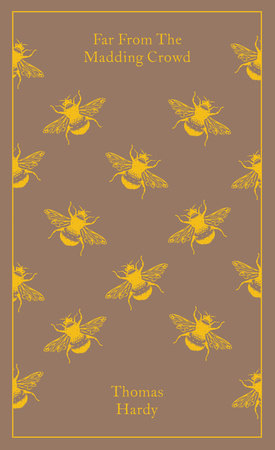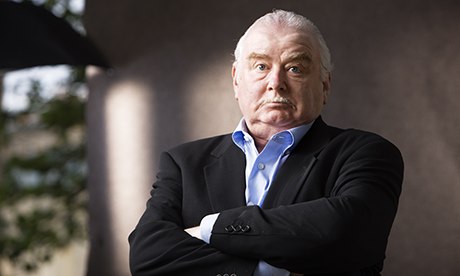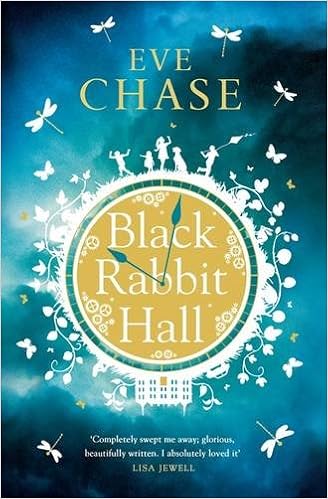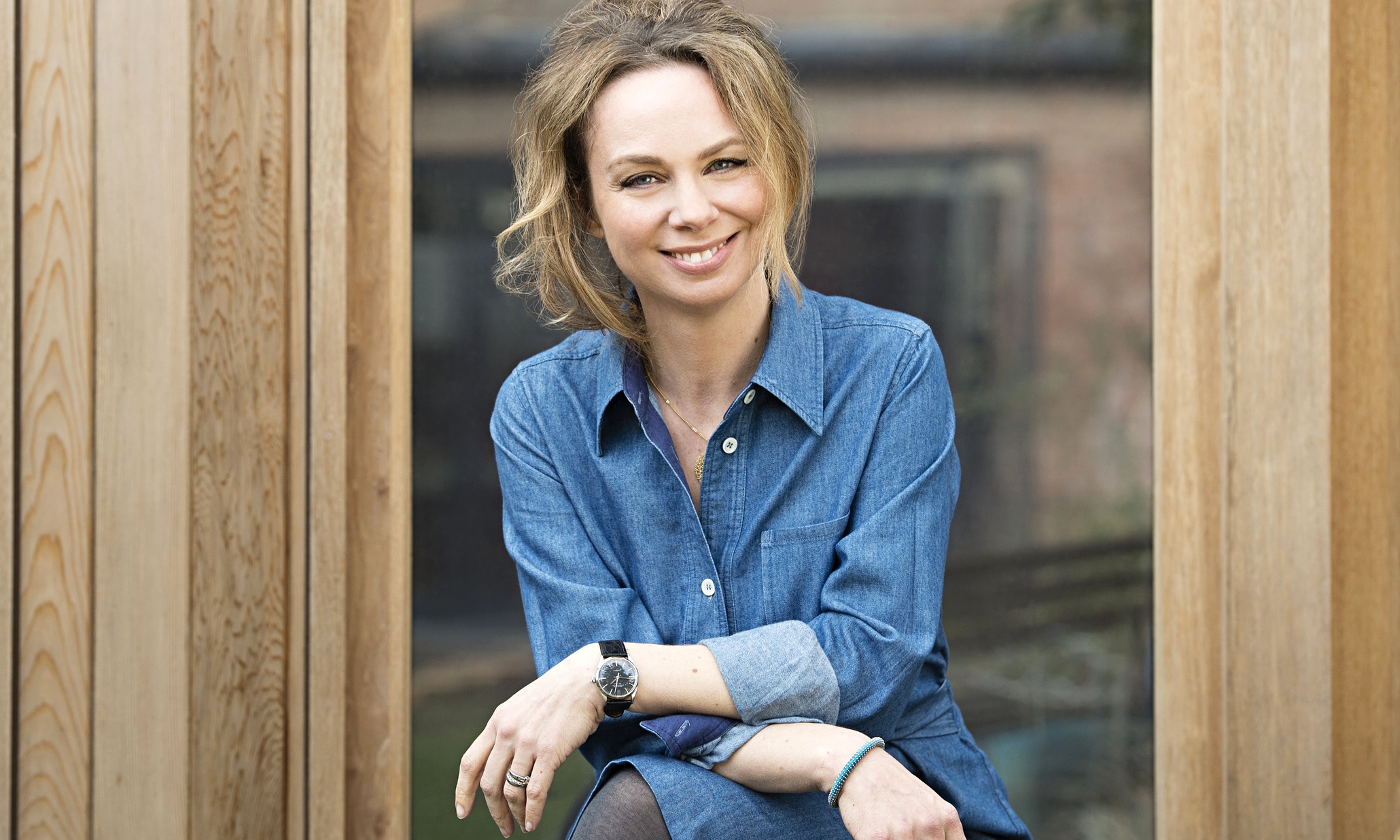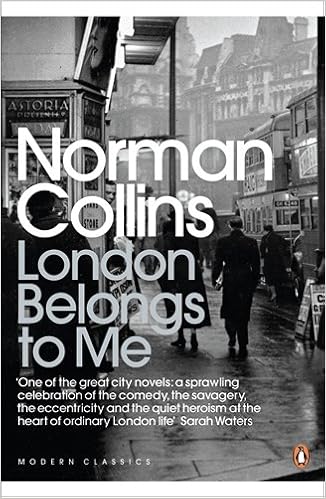Wednesday, July 29, 2015
Tuesday, July 28, 2015
Far From The Madding Crowd by Thomas Hardy
Review by The Quidnunc
I first read a Thomas Hardy novel when I was 9 years old... From that moment on I fell in love with English literature. For most girls it has always been Jane Austin and the Bronte Sisters... For me it has always been and always be only Hardy. Even cinematicaly we have always understood each other very well. From the early adaptation of Tess of the D'Urbervilles to the latest Far From the Madding Crowd it has been a journey of love and re-play.
Today I am going to review the book, but be sure that the 2015 film will no disappoint you either. Far From the Madding Crowd is the quintessential ‘rural read’. IT tells the story of Bathsheba, a young woman who inherits her uncle’s farm
and decides to run it herself. While running the farm, Bathsheba
becomes the target of three potential suitors: the wholesome Shepherd
Gabriel Oak, the lonely and wealthy Mr Boldwood and the handsome but
dastardly cad Sergeant Troy. It is this narrative that drives the story,
which is filled out with events on the farm. I love Bathsheba for she is is a marvellous free spirit embodied with verve and passion and steely courage. She races her horse across the moors of Wessex — Hardy’s
fictionalization of the rural English county of Dorset — riding
astraddle in a most unladylike yet most practical manner. She wears a
cool leather jacket and “intend[s] to astonish” the workers at her
uncle’s farming estate, which she has just inherited and will run as if
she were a man, even though it is the female-unfriendly Victorian 1870s.
That girl is what I would call a Victorian Hurricane.
 Every few years I re-read it and the answer is always the same Far From the Madding Crowd is a wonderfully written story that simply pushed all my buttons. It is the novel which established
Every few years I re-read it and the answer is always the same Far From the Madding Crowd is a wonderfully written story that simply pushed all my buttons. It is the novel which established
Thomas Hardy as a writer and opened
the door which would allow him to make a living out of writing, rather
than being a carpenter. Even though other novels, such as Tess of the
D’Urbervilles or Jude the Obscure are probably better known to the
wide public, Far from the Madding Crowd is special in many ways. Furthermore, Bathsheba defines Hardy as a sympathetic feminist. It is not my
intention to bore you with literary criticism matters, but, for the
Hardy fan, it is common knowledge that he rather sides with his feminine
characters than with the masculine ones. Bathsheba is one of the first
characters which allows Hardy to fully do this. She determines one man
(Boldwood) to commit murder and then suicide, she faces Sergeant Troy
when he unmasks himself for who he really was and finally accepts
Gabriel next to her, not as a sign of surrendering to male power, but as
a sign of wit and virtue.
The novel abounds in symbols and each character is more than a
typology. Sergeant Troy, for instance is often viewed by critics as a
figure of the devil. However, let’s not forget that the READER is the
most important critic, so if you want to give meaning to the other
characters yourself, this novel is a must-read.
Another reason why Far from the Madding Crowd is bound to become one of your favourites is that it will surely change the meaning of ”Valentine’s day” for you, forever after.
Thursday, July 23, 2015
Let's Just Say It Wasn't Pretty by Diane Keaton
Review by The Quidnunc
Let me just say I simply adore Diane Keaton, she is one of those iconic people that reach out straight out of the screen and swirl you up in their whirlwind of charm and beauty. Like most of you I fell in love with her in Annie Hall and have been so deeply intrigued by her ever since.
A single mother of two she still rocks her trademark look: a bowler hat, tinted glasses, scarf, gloves and boots! But she is so much more than a fashion icon, she is witty, and smart, and captivating.
In her memoir "Let's Just Say It Wasn't Pretty" she talks about ageing, beauty and power of the power of turtle necks. I never realized it while I was reading but now that I reflect on what I experienced while reading, I realize that Diane Keaton's voice was the voice of the narrator on every single line in this wonderful work. And let me tell you something: her sense of humour, her cheeky comments and her femininity are right there, and they are right on spot. I simply love her writing and her honesty. Through the pages Keaton tells the story of how she
learned to find beauty and appreciate it in every form. Her wonderful and quirky ideas can be summed up by one of the most famous quotes on beauty: "Beauty is truth, beauty truth"("Ode to a Grecian Urn", Keats). "Let's just say it wasn't pretty" is funny, wise, thoughtful, uplifting, but mostly unvarnished. It is the story of a woman that has no and had never had illusions of her own self, a woman who possess her charms and knows how to use them.
Diane Keaton's book of pensées is simply stunning.
Monday, July 20, 2015
The House of Doctor Dee by Peter Ackroyd
Review by The Quidnunc
"The House of Doctor Dee" begins with the researcher Matthew Palmer who inherits a house from his father. The house itself is a strange combination of ancient and modern, somewhere in Clerkenwell and seems to be cut off of the real world. Time is an abstract notion between the walls of the house.
The story itself is told from two separate first person narrations - Palmer's & Doctor Dee's which result in the interlocking of the lives of the two men. Palmer starts digging in old documents, hoping to find out the truth about the house and its connection to his family, while Doctor Dee dedicates his time on researching the history of London, convinced in the existence of a different ancient London beneath its modern look.
Although the character of Dee is based on an existing real life scientist, Ackroyd manages to even more depth into it through the use of authentic dialogues within the novel. He adapts Dee's own language and transfers it by adapting it to the modern readers' expectations. In fact, the richness of the vocabulary used in the narration of the Doctor makes his part of the book far more intriguing than Matthew's.
The thing with this Ackroyd is that it definitely is NOT an easy read. And I believe that for someone to fully appreciate the merits of this historical novel, one has to have a particular interest first of all in the life of John Dee himself and a little bit of historical knowledge of the era. For John Dee has always been a secret interest and my humble knowledge of Elizabethan culture and language made the reading that more exciting for me! Plus, I have already had my try at "Conversations with Angels". This made Ackroyd's Dee much more of a pleasure than a torture for me than for the average newbie to historical novels.
With this in mind I definitely recommend this book, but be AWARE you should not rush with it. It is a going-steady read.
New Grub Street by George Gissing
Review by The Quidnunc
"New Grub Street" was published in 1981 & instantaneously filled literary London with buzz. It bares the name of a London Street (no longer existing) that became synonymous with hack literature (the term applies to paid writer's and their works). The main characters are two contrasting figures: Edwin Reardon ( talented, yet with low commercial prospects) & Jasper Milvan ( a journalist with semi-scrupulous attitude towards his writing).
On the whole the novel is a discussion of the threats and opportunities the new mass culture offers. Following the life of Reardon, who after achieving success gives up his scholar position and spends his earnings on an European trip, then marries the socially ambitious A. Yule. Under the pressure to produce & his unwillingness to compromise his artistic views, Edwin struggles to meet the demand of the market. eventually this leads to his divorce and the collapse of his health.
Whilst Reardon and his friend Biffen represent the past,
Reardon’s acquaintance and fellow writer, Jasper Milvain, is portrayed
as a man of his times. He grasps every commercial opportunity and makes
the most of his limited talents:
"Literature nowadays is a trade. Putting aside men of genius, who may succeed by mere cosmic force, your successful man of letters is your skillful tradesman. He thinks first and foremost of themarkets . "
This is a literary world centred on London. Reardon tries to argue that this should not be so in an impassioned conversation with Biffen:
"It's a huge misfortune, this will-o'-the-wisp attraction exercised by London on young men of brains. They come here to be degraded, or to perish, when their true sphere is a life of peaceful remoteness. The type of man capable of success in London is more or less callous and cynical. If I had thetraining of boys, I would teach them to think of London as the last place where life can be live worthily."
But Jasper Milvain’s success suggests otherwise. He is able to exploit the opportunities the London literary market presents; a market driven by reviews, publicity and alliances.
"Literature nowadays is a trade. Putting aside men of genius, who may succeed by mere cosmic force, your successful man of letters is your skillful tradesman. He thinks first and foremost of the
This is a literary world centred on London. Reardon tries to argue that this should not be so in an impassioned conversation with Biffen:
"It's a huge misfortune, this will-o'-the-wisp attraction exercised by London on young men of brains. They come here to be degraded, or to perish, when their true sphere is a life of peaceful remoteness. The type of man capable of success in London is more or less callous and cynical. If I had the
But Jasper Milvain’s success suggests otherwise. He is able to exploit the opportunities the London literary market presents; a market driven by reviews, publicity and alliances.
As
far as tragic novels go, Gissing doesn't have the narrative power of a
Joseph Conrad, or even a Thomas Hardy at his best; nor does he have the
singular gift of psychological subtlety of a Henry James; or the
ambition of Mary Ann Evans aka (bka?) George Eliot; not even close.
These writers can be downright operatic in their works. Gissing's style
is a wonderful and curious hybrid of knife fight and Victorian drawing
room comedy. No, there is no violence to speak of; not in the physical
sense. The violence comes from the "benign neglect" of a culture that
doesn't give a damn about serious art or artists, but will peddle the
most mundane works for the "quarter educated" masses for a cheap quick
dollar, or rather pound, since the scene of the crime is London in the
1890's. Gissing's hand is savage, and spot on, not just about his age,
but of apparently about our own. Think our age invented empty fame, or
hype men, or "hustlers?" Not so. A great read, I have to put it on my
"cynic's syllabus" of works that eviscerate a medium: on lit, it joins
(or rather pre-dates) Wallace
Thurman's Infants of the Spring, on
Broadway the film All About Eve, on film the film Sunset Boulevard, on
Hollywood in general The Player, on television the film Network. I read
about the book years ago, in a piece in the New York Times on books that
aspiring writers should never read, (Gissing would appreciate the
clever lure; one could almost see one of the hacks he writes of using
the same device to help sell copy; Gissing would also entirely
understand our click conscious culture, where fortunes are made and lost
on the amount of eyeball traffic a site gets.)Read it. Think about it.
Tell somebody about it after you're done.
 |
| Grub Street remanmed to Milton Street in 1830 |
Friday, July 17, 2015
Black Rabbit Hall by Eve Chase
Review by The Quidnunc
The book definitely wasn't on my to-get-from-the-library plan but as I was about to leave the local branch something called me back just like Lorna was unexplainable drawn to Black Rabbit Hall. I wondered for a bit in between the shelves trying to locate the source of the whisper that made the hairs on my neck stand.
Minutes later there is was in its brand new cover, only 15 days settled in its new library home "The Black Rabbit Hall" by Eve Chase. Firstly, I succumbed to the cover - these days I have a thing for blue and dragonflies, I guess Irish has finally got my sane... almost sane brain. I barely made it home before opening the book.
The novel is set in an idyllic Cornish home where nothing much happens... or so it seems. Pencraw or Black Rabbit Hall is the cross point of the two plot lines developed in the book, two tales alternating between 1960s summers, when Amber Alton and her relative occupy the home and a time a couple of decades later when Lorna, a bride-to-be is on her quest for a wedding venue and sets her mind on the Cornish mansion.
The time goes "syrupy slow" and "nobody cares the clock are all set wrong" in this fairytale Cornish sanctuary... until a tragedy changes the lives of its inhabitants. Amber looses her mother to a tragic storm accident and nobody will ever be the same.
Hand to my heart the book made me obsessed for a day, That's how long it took me to read it. I caught up with the authors clues quite fast, though and the ending didn't get me unprepared, nevertheless it was a marvellous read, especially for the summer. Eve Chase is a brilliant storyteller and I cannot but admit hearing Daphne Du Maurie's echo in between the the lines. I love "Rebecca" and if you love Rebecca, as well, I ensure you that "Black Rabbit Hall" will leave you charmed and smiling for the rest of the week.
Monday, July 13, 2015
London Belongs to Me by Norman Collins
Review by The Quidnunc
I have never been so afraid to read a book my entire life... Reason is the preface to one of the editions claimed that Norman Collins is a author of 16 novels and 2 plays in total, none of which was worth remembering or worth even mentioning... London Belongs to Me on the other hand is a "CRIME AND PUNISHMENT" MEETS "PASSPORT TO PIMLICO" type of novel that takes your breath away.
As a literature fanatic I feel tempted to call the novel Dickensian in scope, for it is centred around a family and the people who are drawn into their social orbit and is quite successful in providing an accurate account of London in the historical period. The plot begins month prior Christmas 1938 and the same festive occasion of 1940. The Jossers, an ordinary family of the lower middle classes, are the central characters, but the house in which they live, 10 Dulcimer Street, Kennington, is the equal core of the story.
We are introduced to the pliable Mr J on the day of his retirement when he is about to take leave of the City firm he has worked in as a ledger clerk for all his working life. He is clearly a nondescript sort of person who will be soon forgotten once he passes out the doors of the office for the last time. But he is on his way home to a family where he has a much more elevated status, and a small circle of neighbours, to whom he is an eminently respectable person.
For the time being the Jossers are keeping everybody afloat. As a counterpoint to Mr J’s sunny amiability, his wife is the keenly watchful matriarch who really holds the family together. Her eyes survey the boundaries of the family’s respectable status, which extend to her son Ted – pride and joy in himself but has rather let the side down by marrying Cynthia, a generic blonde beauty of the age, but whose social status was that of a mere cinema usherette. Ted has the prospect of rising to a better position as a manager in the Co-op, but his Cynthia-besotted status has opened up a vulnerable flank which Mrs J is ever alert to.
In the background there is London itself. It is a smaller city in size than the one that exists today, with the feel of the countryside still being just about there in places like Crouch Hill. But it has a larger population, with 8 million crammed into its boroughs. Its clashing cultures of shabby wheeling and dealing contrast with the middle class aspirations of its clerks and secretaries, and not far away are the looming threats of a continent that might sent bombers across at anytime to blow it to pieces. Collins captures it all so well in this vibrant and funny novel.
At its best the book is a directed but unforced tour of aspects of British – English – culture during wartime: a world of “chimney pots and telegraph wires”, of Bakelite and green baize, of séances and boxing matches (“The Tiger entered the ring in his celebrated striped dressing gown, allowed his seconds – two bullet-headed thugs like escaped convicts – to disrobe him as though he were too well-bred to do that kind of thing for himself, and stood there, like a cockerel, turning himself about for the people to admire him”), and of Lyons’ Corner Houses and miserable London weather, where “it was as though someone had deliberately smeared a wet dirty cloth across the sky”.The appeal of London Belongs to Me is in its easy fluency and compelling serial storylines, and in its satisfying representation of a place and time which feels nostalgic but was written as contemporary reporting. Collins lacks the edge of Patrick Hamilton or Julian Maclaren-Ross, but the book has a charm and warmth which goes beyond the not insignificant achievement of simply writing a 700-page book without cocking it up. Maybe that’s what E.M. Forster meant.
Twenties Girl By Sophie Kinsella
Review by The Quidnunc
Sophie Kinsella’s books have been on my LML pile for a long time ever since last September when I moved to London, I thought that it would be a nice touch to read a local author.
Twenties Girl is one of her stand-alone novels: a sweet story that will make you more sensible about your older relatives and how they feel when they are getting old. You are going to have a good laugh through the entire book and it will make you think about Sadie every time someone says “There is a voice in my head!”
Twenties Girl is the story of 27 years old Lara and her 105 year old Great Aunt Sadie. It begins with Sadie’s funeral when any of her relatives can say a thing about Sadie’s life. She had a stroke in the 80’s and since then she lived in a Nursing Home –for 29 years-. Her 23 year old ghost is aghast because she can’t find her necklace and she is going to be cremated without it, she needs it to find peace and “move on”, that’s when she discovers that there is someone that can hear her: her great niece Lara.
Lara is a daydreaming 27 year old girl whose life is falling apart, her business partner and best friend fled to Goa and let her with a business that she doesn’t know how to run, her boyfriend broke up with her without any explanation and her family is breathing down her neck all the time worrying about her life. Obviously, when Sadie starts talking to her and demanding for her to search for her necklace she thinks that she is going mental. From that point on Kinsella takes you on a rollercoaster ride of emotions: you go from annoyed because you feel like you want to murder Sadie (a Ghost) and her childish demands, to melancholic because you wish for Sadie to get her HEA.
I have -almost- anything but praises for the characters of this book, Sadie is beautiful, vibrant, openly honest and yes annoying; her inner strength goes beyond death and teaches you how to live wholeheartedly. Lara is like every other Sophie’s heroine, extremely funny, with dancing problems and a tendency to lie.
Lara’s family was filled with fun characters. Her Dad is a sweet guy, full of good advises and a heart of gold. And her mom, oh God her mom! I wish there were more scenes with her, she is hilarious, is the kind of person that is really apprehensive about life in general, take this part of the book when Lara in phoning home:
Then we have Uncle Bill, the multimillionaire entrepreneur that started a Café’s franchise like Starbucks with only two coins, he now has a book and runs seminars coaching people on how“I dial the number, lean back, and wait for Dad to pick up. (Answering the phone makes Mum anxious, because it might be kidnappers.)”
Both Lara and Sadie have love interests in this novel, some of them from the past and a particular one from the present. Sadie led Lara to discover a new and healthy relationship that made her realize that life just happens and some things are not meant to be. Ed, their “Daddy-O”, is a big part of the story, in some ways he is a bridge to more heartbreaking and wonderful things
In general, the plot is interesting but the narrative is what makes this a wonderful story. Is a quick read full of scenes worth re-reading, is a story about love, family and doing something worthwhile with your life. Although, I was quite sceptical about this novel - being a chick-lit I had my prejudice- I admit I was wonderfully surprised by the way it touched me. Sadie reminded me so badly of my best friend that I couldn't but shed a tear when she finally found her rest. If there is something sure about this novel, is that you are going to have a whole range of feelings for these characters.
Subscribe to:
Posts (Atom)


